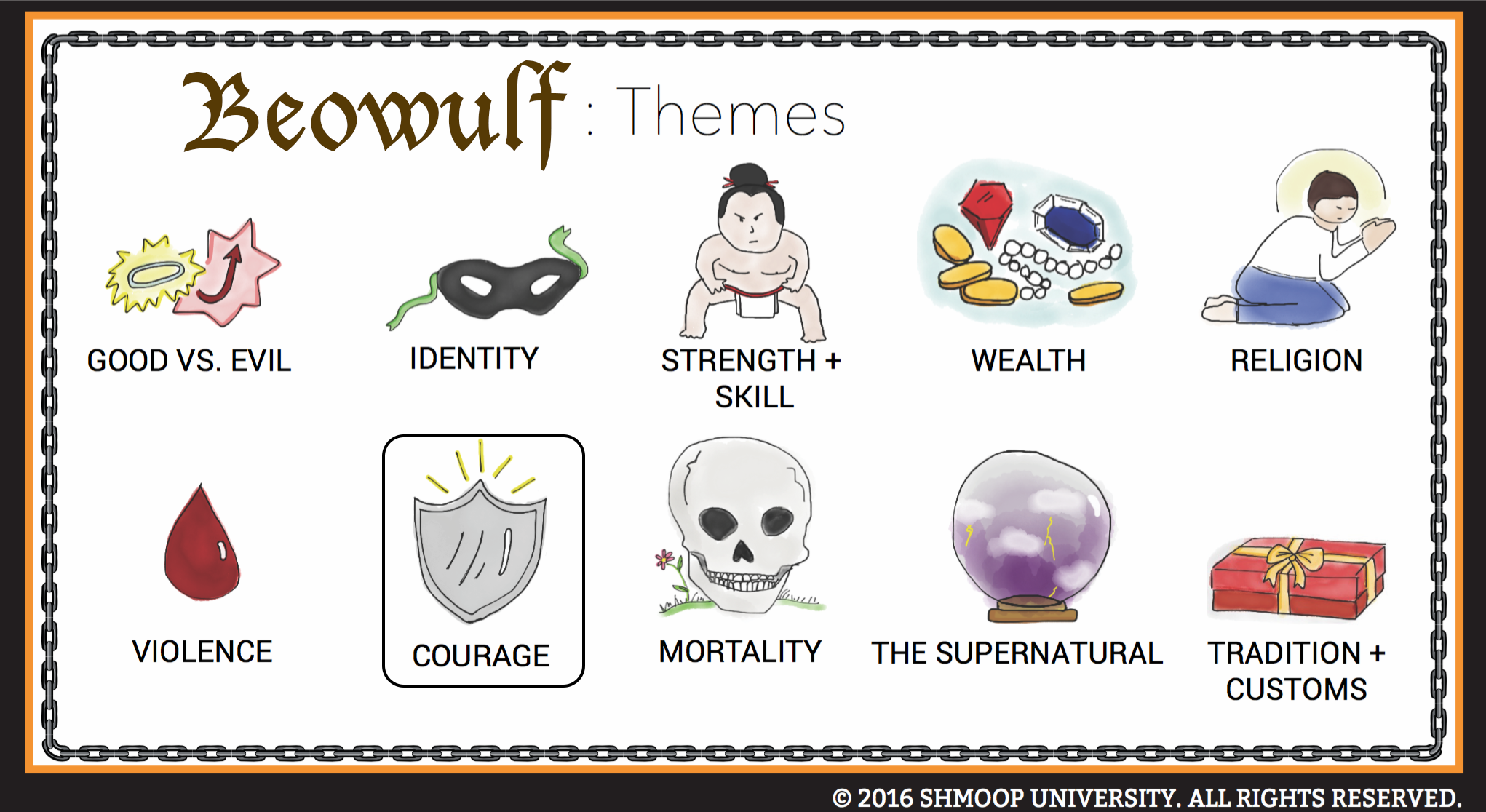 (Click the themes infographic to download.)
(Click the themes infographic to download.)
Courage is the foundation of the warrior culture that underlies the story of Beowulf. In this epic, a true warrior's bravery comes from a completely fatalistic attitude toward life and indifference to death. Someday, he will die and be defeated. Everything is going to happen as God wills it. All that the warrior can do is meet every challenge fearlessly, increasing his own reputation for courageous deeds, so that when he dies he will be renowned for his bravery. Nevertheless, there are a lot of cowards in Beowulf…or, if that's a little harsh, at least people who aren't willing to live by this fatalistic code of honor.

Questions About Courage
- Is courage always rewarded in the world of Beowulf? Can you think of examples of brave men who suffer or die regardless of their courageous behavior, or perhaps even because of it?
- Is cowardice always punished in the world of Beowulf? Are there characters that prosper and succeed despite choosing not to engage in certain battles? How are these characters depicted by the narrator?
- For Beowulf, is courage more important in victory or in defeat?
- These days, it's popular to distinguish between courage – acting bravely in a frightening situation – and stupidity – doing something that's so brave it's foolish. Is there any distinction of this kind in Beowulf? Do any characters show "extreme courage" that borders on stupidity?
Chew on This
The poet argues through the character of Wiglaf that Beowulf should not have chosen to fight the dragon; while courageous, his decision was disastrous for his people, who are left without a protector after Beowulf is killed.
In Beowulf, courage is not the confidence a warrior has in his victory; it is his resignation to his eventual defeat.